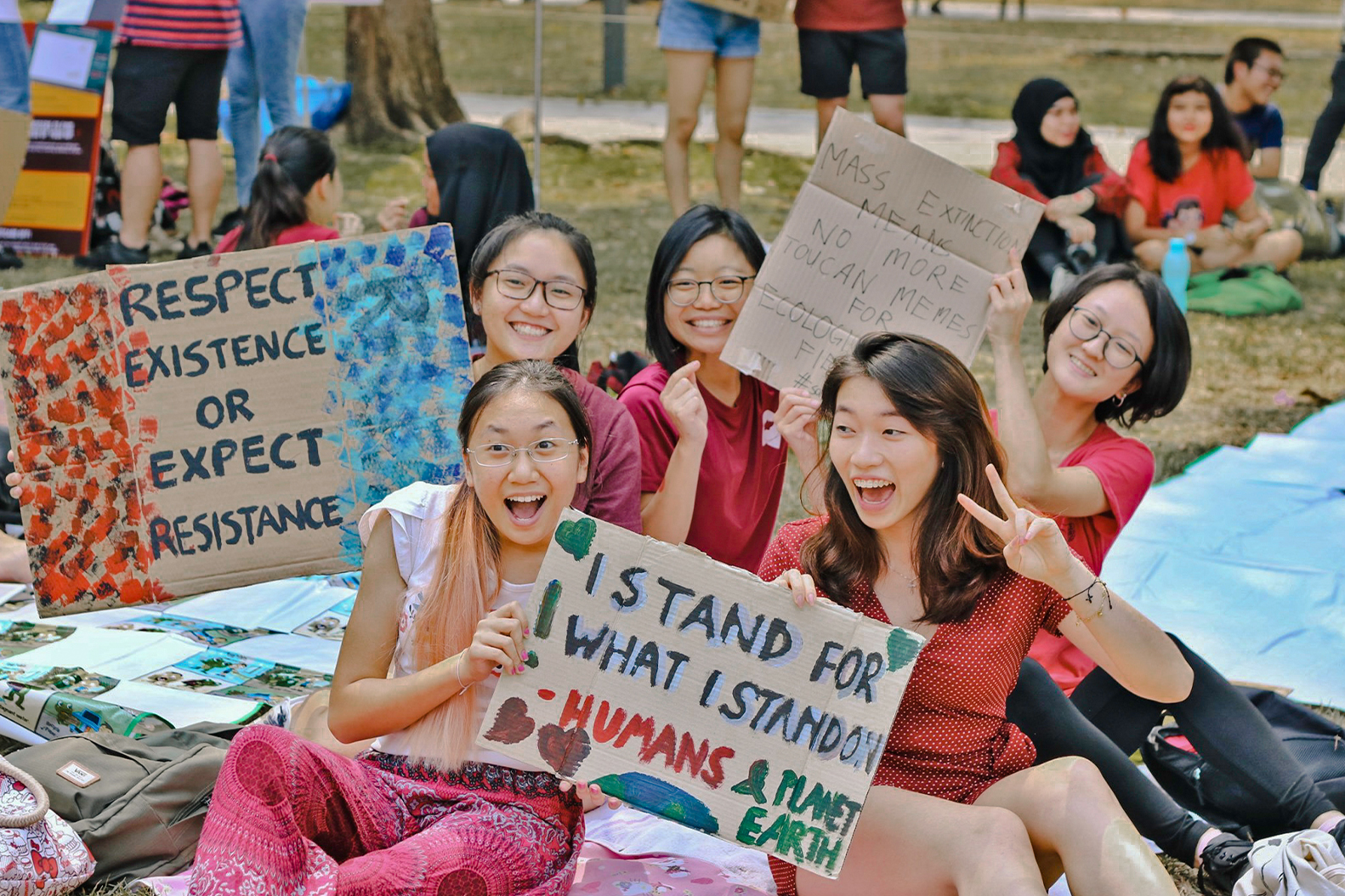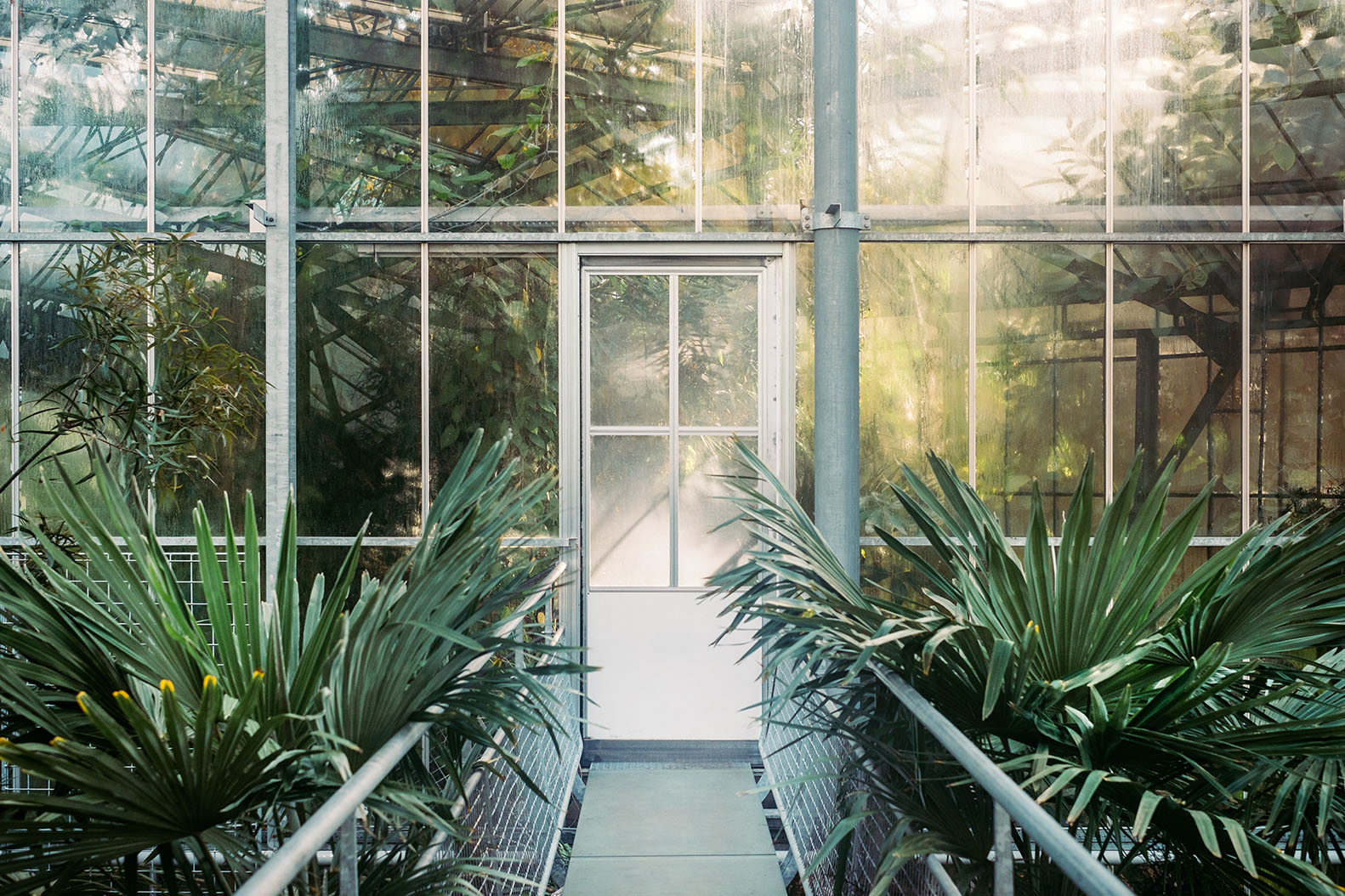My dad is an environmentalist and I grew up slightly averse to all this creation care jargon. After all, this was “the work that took my father away”.
As a follow-up to the previous article I wrote about my dad, I should clarify that he was always away on eco-mission trips to plant trees in the desert to reduce the regularity of sandstorms hitting cities in China.
Yet I am an environmental studies major today, who spent the past summer hunting for phasmids (stick insects) in the jungles of Cameron Highlands and Brunei. My face was even featured on The Online Citizen‘s article about the recent climate rally.
Because it wasn’t until my dad handed me a copy of Paul Gilding’s The Great Disruption that my life began to take a different route. It took me quite a while to finish the book because of how mentally and emotionally draining it was. I used to think that the gloom and doom of climate change would somehow skip my generation, that it was an issue I’d never have to worry about.
The book taught me otherwise – that environmental degradation was a real and pressing problem that needs to be addressed immediately.
Like Greta Thunberg, I felt frustrated. Like many others, I felt helpless.
Why should Christians care for the environment? Where’s the biblical evidence for environmentalism?

I used to have debates with my Christian friends who asked such questions. They would wonder why we should care for the environment “since the world is gonna die” and “we are going to heaven anyway”.
It is easy to point people to Genesis 1, but being human we tend to skip to verse 26, when God made man and gave him dominion over the creatures of the earth – without seeing the significance of day one to five.
In truth, caring for our environment is not a law to follow, but reflects the biblical principle of stewardship found throughout the Bible.
How ironic would it be to share about God’s love and provision to people who are physically starving without feeding them first?
So if I truly care for and love God’s people, I would care for their environment as well. How ironic would it be to share about God’s love and provision to people who are physically starving without feeding them first?
Likewise, by caring for the environment, I am bringing God’s love to people without having to even say a word.
In one of the eco-mission trips my dad led, he casually shared about the work they were doing in the field with a shopkeeper. The shopkeeper responded: “Are you a Christian? Only Christians would do something radical such as this.”
As a creative person, it is sometimes distressing to think about how the Creator God is looking at what humans are doing to His creation.
My father likes to say that the incarnation of Christ is like God stepping into His masterpiece. But especially for us who belong to Christ, what are we turning His masterpiece into?
When I look up into the sky, will I see the warm colours of a setting sun, a blue sky filled with fluffy clouds, a canvas of His grace – or be unable to see at all because of the haze? When I dive into the sea, will I wonder where all the fish have gone and why all the corals have been bleached? The natural environment was meant to reflect God’s beauty, but humanity is spoiling it.
As I spent more time in the wonders of God’s creation, it drew my attention away from myself, away from the parts I did not like when I looked in the mirror, away from desiring to be in the spotlight, away from being self-absorbed and too inward-looking.
Instead, the grandeur of nature showed me there is an otherworldly beauty we cannot begin to compare ourselves with. It reminded me of how small I am, and how breathtakingly big God is.

Over the years, I’ve learnt to see that being environmentally conscious means adopting a holistic lifestyle – and it’s one that I believe God calls us to.
Why should I care? I think the question should be: “How can I not care?”
If I love God, I would love the things on His heart and all of His creation (爱屋及乌).
The next question I started to ask myself was: “How then should I live?”
Once I began to see that I am a part of a bigger ecosystem, it was impossible to disassociate myself from the natural environment.
From understanding the process of where the food on my table comes from, to who is sorting my trash and plastic waste, I realised the importance of being a thinking Christian, to be an agent of change.
The current environmental discourse usually revolves around how individual action is useless – like how switching off your lights is not going to save the planet.
Policymakers and business corporations have the highest power to make the biggest and most impactful change. For a while, I felt disempowered. Where did that leave me, a student who is currently not interested in pursuing politics as a career?
For since this is my Father’s house, how will I leave it better than I entered it?
Climate change can sometimes be depressing – many in my generation can’t even imagine a future with our own children anymore.
But as a Christian, I hang onto the hope that God is not finished yet. Is this the end of the world? Maybe.
But that doesn’t mean I should stop trying to live. It should not prevent me from trying to restore and redeem this world that He so loved. Jesus did not call us to sit around and wait for those in political power to make the change.
Caring is the first step of realising the importance of taking responsibility for my every action and stewarding this home entrusted to us. For since this is my Father’s house, how will I leave it better than I entered it?
- How do you feel when you spend time in nature?
- Does the state of the environment bother you?
- What are some simple steps you can take towards greater sustainability?









